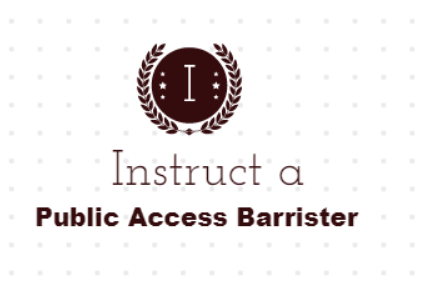By Rachel Spearing, Barrister at Serjeants’ Inn Chambers and Visiting Fellow of Bond University in Australia
Globally the legal profession has become increasingly aware that significant numbers of lawyers are experiencing concerningly high levels of psychological distress. This is a serious issue relevant to the future sustainability of the profession. A profession in distress is ill-equipped to cope with the challenges of uncertainty and disruption that are now endemic in the contemporary world of work. It is also an issue that pertains to the efficacy of legal practice, as there is evidence linking stress, anxiety and depression with impaired professional judgement.
Since starting this conversation in 2014, Leaders of the Profession have begun to gather evidence from their members, inculcate learning in education and respond to the phenomenon of distress. Bar Associations around the world have created well-being related continuing professional development and portals of information, assistance and support.
Slowly data and research are emerging to reveal the causes of the causes. The complex myriad of personal and professional conflicts arising in humans and our working environments, suggest that it is not only our efficacy at risk but an existential threat to retention and progression. An evolving concept to promote and support lawyer well-being is the development of a positive professional identity across the legal profession, beginning at law school. This hypothesis is based on positive psychology and its meta-theory – Self Determination Theory (the concept that all humans have 3 basic psychological needs. – autonomy, competence, and relatedness underpinning motivation and thriving).
Ibarra[1] suggests that a professional identity includes a ‘constellation of beliefs, values, motives and experiences’ by which we define ourselves in our professional lives. A professional identity is how we understand what it means to be in and of a profession. The concept of a professional identity is therefore a broad church, with much room for diverse manifestations at an individualised level for lawyers working across all the various arms of the profession.
There are three key generic elements that together make up a ‘professional identity’ as a concept[2]. First, personal identity, including factors such as one’s personal history, life experiences, personality, feelings, goals and values. Second, role identity, which is made up of professional functions, activities and responsibilities specific to individual professions. Third, social identity, which refers to the values and goals to which the profession collectively commits within a societal context.
The personal identity that lawyers bring to their professional identity formation is of course unique to each individual, and their particular context. However, the role and societal identities for lawyers, as members of a community of expert professional practice, have synergies across the various arms of the profession, notwithstanding that various lawyering roles involve different aspects of practice and diverse ways of contributing to the law as a professional endeavour. Upholding the rule of law is a central and bonding value element of the social identity of the profession. Equally operating within a framework of ethical standards and important principles means that the role of a lawyer is much more than a financial enterprise, often informed by intrinsic and altruistic motivations grounded in service to the community.
The hypothesis that a positive professional identity has a role to play in progressing lawyer wellbeing and development is supported by positive psychology. This relatively recent discipline focuses upon what has gone right with people, improving their human and professional growth rather than addressing what goes wrong. This aims to help people create their own conditions for increased psychological well-being, harnessing their strengths and virtues to nurture the best within themselves. This also combines the retention of their authentic selves, alongside the evolution of a professional identity, avoiding the pains of what is often described as the ‘imposter syndrome’ experienced by those with ‘non-traditional’ backgrounds.
I believe that the development of a positive professional identity is an important strategy in promoting strength, virtue and what is best within lawyers. It is important to ensure that lawyers flourish through the experience of authentic and fulfilling professional endeavours and have the psychological resource to cope with the stressors and challenges of legal practice.
Seligman[3] articulated the PERMA framework in his book Flourish to apply this in practice. First, positive emotion (P) refers to feelings of happiness, including peace and gratitude, satisfaction, pleasure, inspiration, hope, curiosity and love. Secondly, a sense of engagement (E), supporting interest, focus, attention and absorption. Engagement creates ‘flow’, which is associated with peak performance, being interested and alert. Third, experiencing positive relationships (R) is critical to well-being and performance because humans are essentially social beings and being nourished by ‘feeling socially integrated, cared about and supported by others, and satisfied with one’s social connections’. Positive relationships are not only important for sustaining security and reassurance in difficult times but sharing joy in good times. There is a body of evidence associating professional growth and career development with such relationships, which can be evolved through a positive professional identity with colleagues irrespective of background or seniority. Fourth, meaning (M) refers to ‘believing that one’s life is valuable and feeling connected to something greater than oneself’. Lawyers are familiar with a sense of purpose and meaning, both in relation to providing assistance and advocacy but more broadly in terms of the social service to upholding the rule of law. Finally, accomplishment (A) involves ‘making progress toward goals, feeling capable to do daily activities, and having a sense of achievement’. Thus, supporting a sense of competence and strengthening self-belief.
I believe developing a positive professional identity is important for the profession at large as we continue to grapple with operational and personal pressures of practice. In transitional times of professional disruption, evolution and change, ideals must be reconceptualised and rearticulated. An integrated holistic and whole concept of what it means to be in and of the legal profession must be developed. Embracing the evolution and change alongside the diversity and inclusion we have strived for should include more understanding of these challenges, teaching skills and mindset for the well-being and professional development for our future lawyers.
A more detailed academic discussion of this Article co-written with Professor Rachael Field can be found in ‘Educating for well-being in law, positive professional identities and practice, published by Routledge.
Rachel Spearing is a Barrister at Serjeants’ Inn Chambers and Visiting Fellow of Bond University in Australia. She co-founded the Wellbeing at the Bar initiative with Bar Council and created Wellness for Law, a not-for-profit supporting CPD for the Legal Profession.
[1] Herminia Ibarra, ‘Provisional Selves: Experimenting with Image and Identity in Professional Adaption’ (1999) 44(4) Administrative Science Quarterly 284,286.
[2] Mary T White et al., ‘Perceptions of Factors Contributing to Professional Identities’ (2015) 37 42 University of La Verne Law Review 1,2.
[3] Martin Seligman, Flourish: A Visionary New Understanding of Happiness & Well-being. Free Press (2011)




